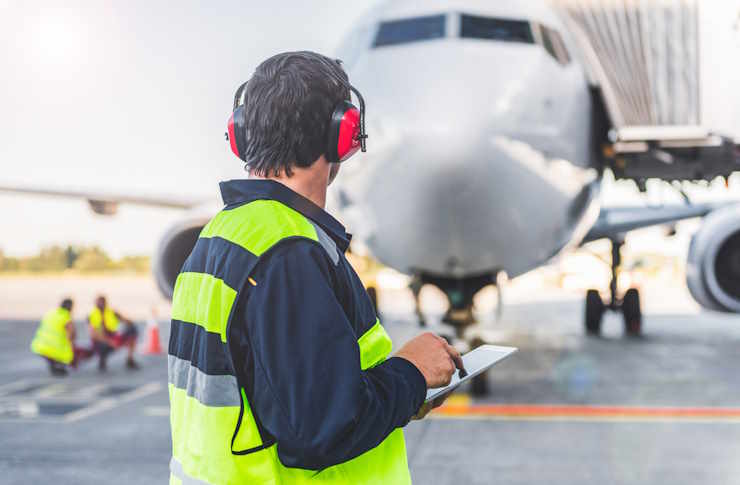Airport Jobs: Opportunities, Roles, and Career Paths in Aviation
Airports function as bustling transit hubs where numerous career opportunities exist across various departments and specializations. These workplaces offer employment options ranging from entry-level positions requiring minimal experience to highly specialized roles demanding advanced certifications. The aviation industry encompasses a diverse ecosystem of jobs that support airport operations, passenger services, aircraft maintenance, security, and administration. Understanding the range of available positions can help individuals identify potential career paths that align with their skills, interests, and professional goals.

Types of Airport Jobs and Their Responsibilities
Airport jobs cover a wide range of tasks, from baggage handling to passenger service and aircraft maintenance. Customer service representatives assist travelers with check-in procedures, ticket inquiries, and general information. Baggage handlers ensure luggage is properly sorted and loaded onto the correct aircraft. Air traffic controllers coordinate aircraft movements to maintain safe operations in the airspace and on the ground. Security personnel screen passengers and monitor access points. Aircraft maintenance technicians perform routine inspections and repairs to ensure flight safety. Administrative staff handle the business operations, including human resources, accounting, and management functions. Each role contributes to the complex ecosystem that keeps airports functioning efficiently and safely.
Education and Qualification Requirements
Many airport roles do not require specialized education but do demand attention to detail and responsibility. Entry-level positions such as baggage handling or customer service typically require a high school diploma and on-the-job training. Technical positions like aircraft maintenance require specialized certifications from the Federal Aviation Administration (FAA) or equivalent authorities. Security roles often involve background checks and specific training programs. Management positions generally require bachelor’s degrees in aviation management, business administration, or related fields. Air traffic controllers must complete specialized training programs through approved institutions and pass rigorous assessments. For most airport positions, strong communication skills, physical stamina, and the ability to work in high-pressure environments are essential qualities regardless of educational background.
Job Market and Employment Prospects
The aviation industry experiences fluctuations in hiring needs based on seasonal travel patterns, economic conditions, and industry developments. Entry-level positions typically have higher turnover rates, creating regular openings for new applicants. Security departments maintain ongoing recruitment efforts to ensure adequate staffing levels for passenger screening and facility monitoring. Customer service teams expand during peak travel seasons, particularly summer and major holidays. Cargo operations have seen growth with the increase in e-commerce and global shipping demands. Specialized technical roles may have more competitive hiring processes but often offer greater stability and advancement opportunities. While hiring practices vary by location and specific airport needs, the industry generally provides employment opportunities across a variety of skill levels and specializations.
Career Advancement and Professional Development
Some airport positions can serve as an excellent starting point for a career in aviation, offering opportunities for growth and development. Entry-level staff can progress to supervisory roles after gaining experience and demonstrating leadership capabilities. Many airports and airlines provide tuition assistance or training programs to help employees acquire new skills and certifications. Customer service representatives may advance to gate management, passenger service supervision, or airline operations coordination. Baggage handlers can move into logistics management or ramp supervision. Security personnel may progress to team leadership or specialized inspection roles. Technical staff often have clear advancement pathways as they gain additional certifications and expertise. Professional organizations like the American Association of Airport Executives offer networking opportunities and specialized training that can accelerate career development.
Salaries and Working Conditions
Compensation in airport jobs varies significantly based on role, location, experience level, and employer type. Entry-level positions such as baggage handlers typically earn between $25,000-$35,000 annually, while experienced air traffic controllers can earn over $100,000 per year. Most airport roles involve shift work, including nights, weekends, and holidays, due to the 24/7 nature of airport operations. Physical demands vary by position—baggage handlers need significant physical strength, while security screeners require sustained attention and vigilance. Indoor roles like ticketing agents work in climate-controlled environments, while ground crew experience outdoor weather conditions. Benefits packages typically include health insurance, retirement plans, and travel privileges, though these vary by employer. Union representation is common in many airport positions, potentially affecting working conditions and compensation structures.
| Position | Average Annual Salary (USD) | Education Requirements | Working Conditions |
|---|---|---|---|
| Baggage Handler | $25,000-$35,000 | High school diploma | Physically demanding, shift work |
| Customer Service Agent | $30,000-$45,000 | High school diploma | Indoor environment, standing for long periods |
| TSA Security Officer | $35,000-$50,000 | High school diploma | Indoor environment, standing for long periods |
| Aircraft Maintenance Technician | $50,000-$85,000 | FAA certification required | Technical environment, shift work |
| Air Traffic Controller | $85,000-$130,000 | Associate’s degree plus FAA training | High-stress environment, rotating shifts |
| Airport Manager | $70,000-$150,000 | Bachelor’s degree | Office environment, business hours with on-call duties |
Prices, rates, or cost estimates mentioned in this article are based on the latest available information but may change over time. Independent research is advised before making financial decisions.
Finding Employment at Airports
The aviation industry offers various pathways to employment through both traditional and specialized channels. Many airports and airlines post job openings on their official websites, creating dedicated career portals for interested candidates. Industry-specific job boards like AviationJobSearch and AirportEmployment aggregate opportunities across multiple employers. Temporary staffing agencies often have contracts with airports to fill seasonal or entry-level positions. Job fairs hosted by airports or aviation companies provide opportunities to meet recruiters face-to-face. Professional certifications relevant to specific roles can enhance candidacy, particularly for technical or specialized positions. Networking within the industry through professional associations can provide insights into unadvertised opportunities. When applying, candidates should highlight transferable skills such as customer service experience, technical aptitude, or security backgrounds that align with aviation industry needs.
The aviation industry presents diverse career opportunities across various skill levels and interests. From customer-facing roles to technical positions behind the scenes, airports function as self-contained employment ecosystems with numerous entry points and advancement pathways. While some positions require specific training or certifications, many roles welcome candidates with transferable skills from other industries. Understanding the range of available positions, qualification requirements, and potential career trajectories can help individuals identify opportunities that match their professional goals within this dynamic field.




